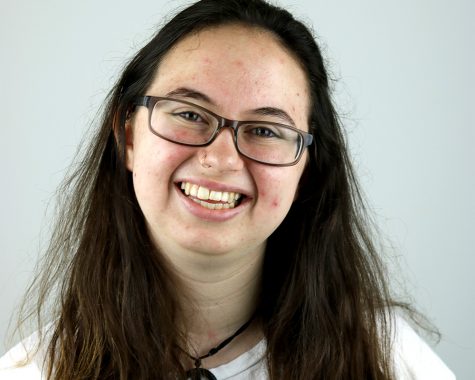Faculty Senate to discuss potential constitution changes
October 29, 2018
The Faculty Senate will look at senate constitution changes and the university think tank proposal at its meeting Oct. 30 at 2 p.m. in Room 4440 of Booth Library.
Proposed changes to the senate constitution now includes the new shared governance proposal discussed at the senate’s Oct. 17 meeting.
Billy Hung, senate recorder and a biological sciences professor, said at that Oct. 17 meeting that he thinks including a constitutional change in regard to senate mission would be beneficial for current and future senators.
“One of the problems (Faculty Senate has), or (the senate) had, with previous years is some of (the senate’s) roles are not clearly defined and then people didn’t know what we were supposed to do versus what we were not supposed to do, and then when (senate) tries to do things we butt heads; we run into (other committees and organizations on campus),” Hung said on Oct. 17. “I think a better clarification, in whatever format, is what I want.”
The shared governance proposal, which is now being folded into the constitutional changes discussion, is meant to address a problem Jeff Stowell, senate vice chair and psychology professor, said has come out of the past shared governance discussions.
In the draft proposal Stowell shared with the senate on Oct. 17, he wrote, “Curricular bodies on campus (CAA, CGS, COTE) are not explicitly asked to consider the new program in the context of the university mission or the fiscal and personnel resources required.”
Stowell said that, due to the role of the senate as it is currently laid out in their constitution, they need to have a consulting role on matters that have major structural or staffing changes, or in this case the resource allocations for new programs requiring Illinois Board of Higher Education approval.
At the Council on Academic Affairs’ Oct. 18 meeting, this proposal was discussed, with many council members seeming confused about the need for a proposal like this.
Amy Rosenstein, CAA member and professor in the department of special education, said at that Oct. 18 CAA meeting that she did not understand why having the senate look over resource allocation and mission alignment for those new IBHE programs was necessary.
“As far as resources go, that’s all in the discussion in the provost’s office, … (faculty proposing a new program) tease out all information before it gets to the Provost’s office, and then it goes through their own college curriculum committees, so it’s not like faculty in that college have not already had a say on it,” Rosenstein said. “Then it comes to (the CAA), then as (elected) faculty, we are the voice of the faculty (on curriculum).”
Marita Gronnvoll, CAA chair and a communication studies professor, said the council will need to see the final resolution before it can decide what stance to take on it.
“The chairs of the curricular bodies (have been) actively involved (with this proposal), but I don’t know what that’s going to mean in the end. I honestly don’t,” she said on Oct. 18. “I guess we’ll find out when we see the resolution.”
The senate will also look at the proposal for a university think tank, or a group on campus that would focus on macro ideas and trends in higher education and would look at Eastern’s future.
The senate decided to form a test version of this visionary group on Oct. 17 that would include four appointed administrative positions, two of which will be filled by Eastern President David Glassman and Provost Jay Gatrell, and four nominated faculty positions along with/or including a potential student position.
The senators will talk about faculty to nominate for the three-year term at the Oct. 30 senate meeting.
Brooke Schwartz can be reached at 581-2812 or at [email protected].
Faculty Senate looks at solutions with shared governance, think tank



















































